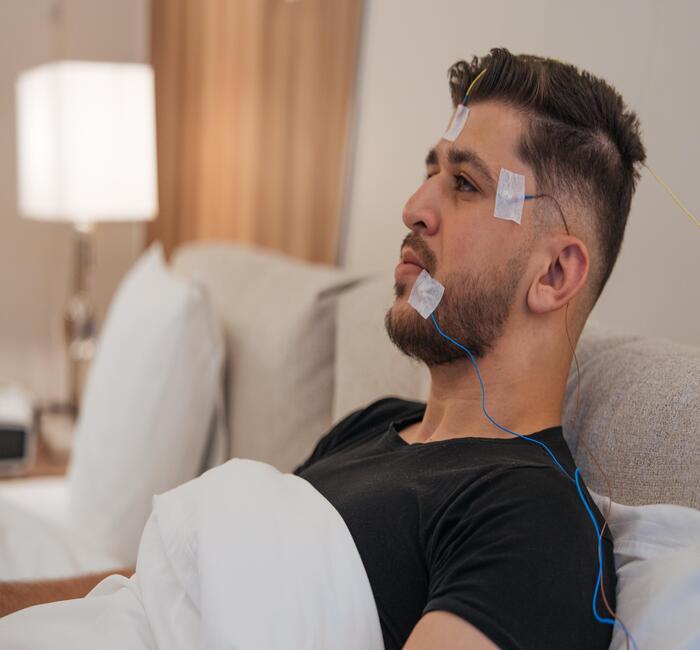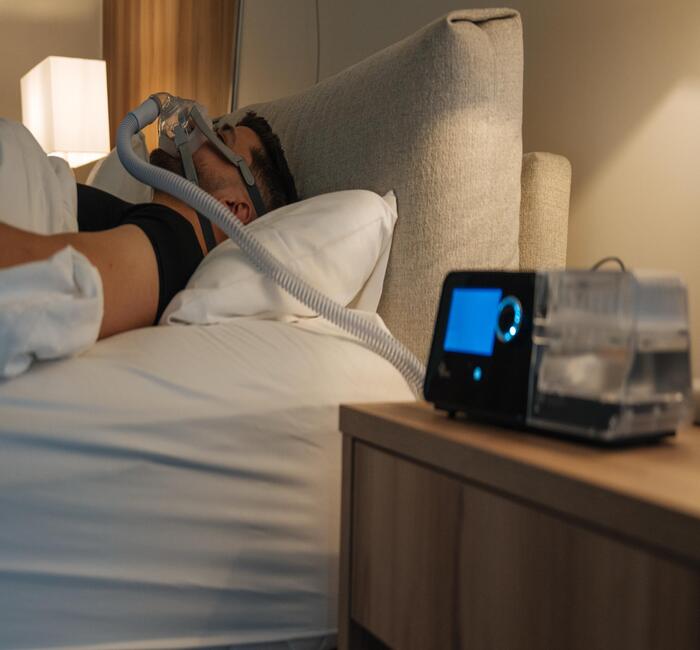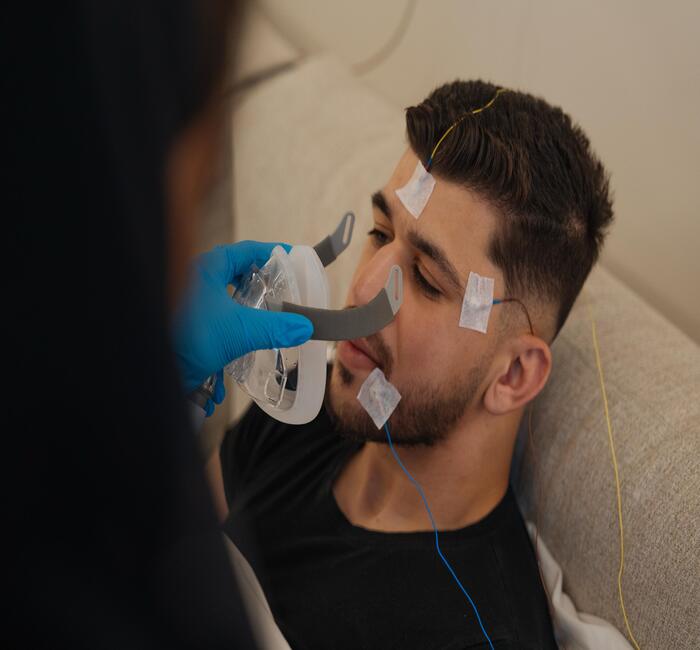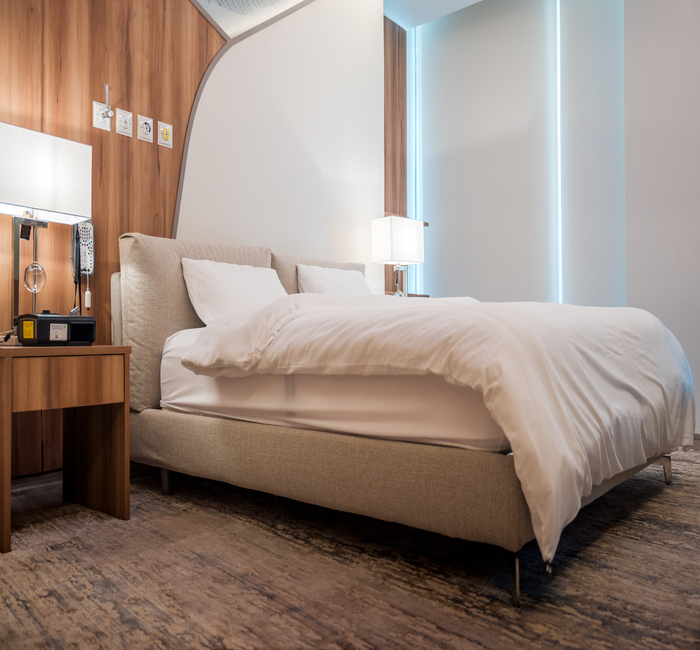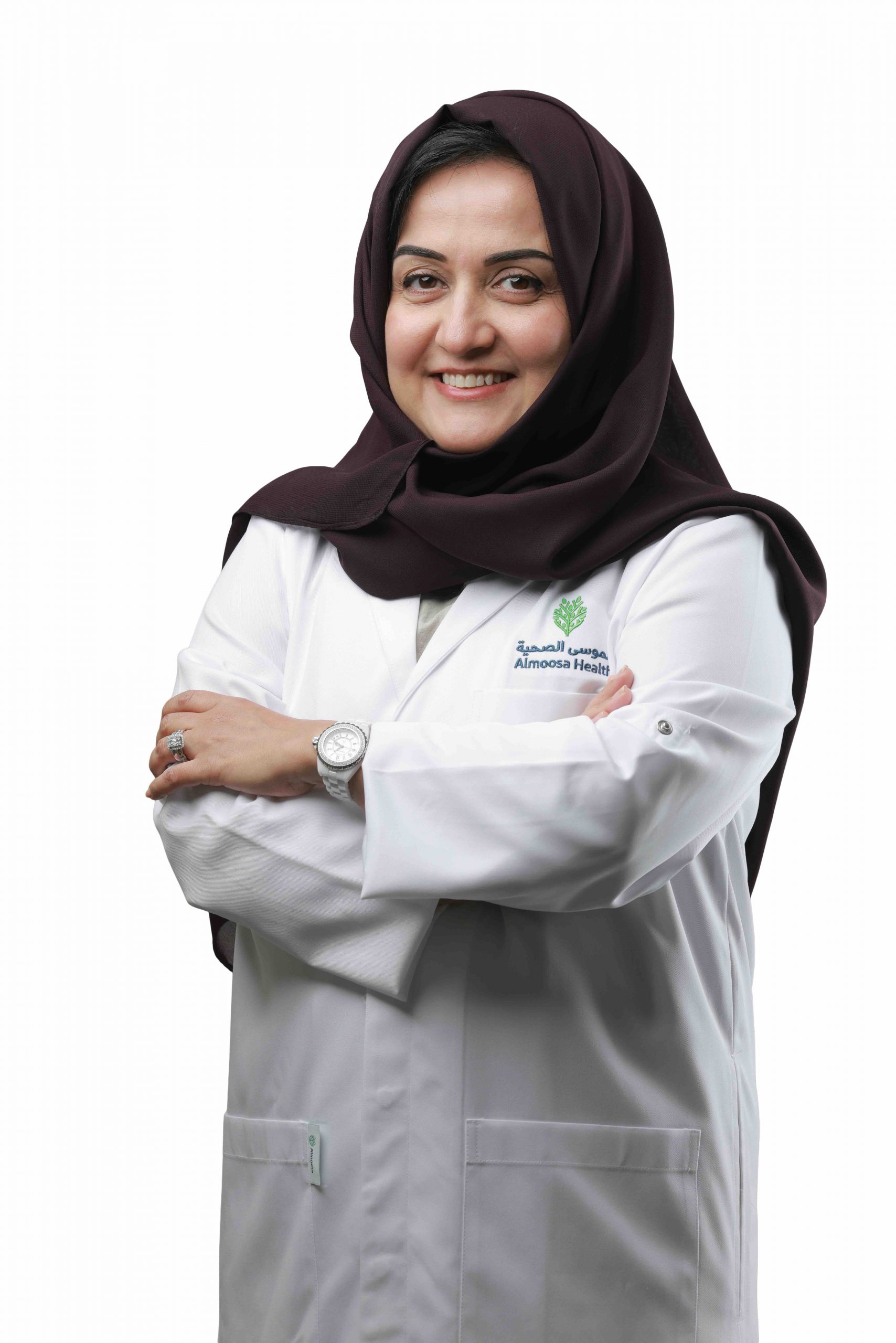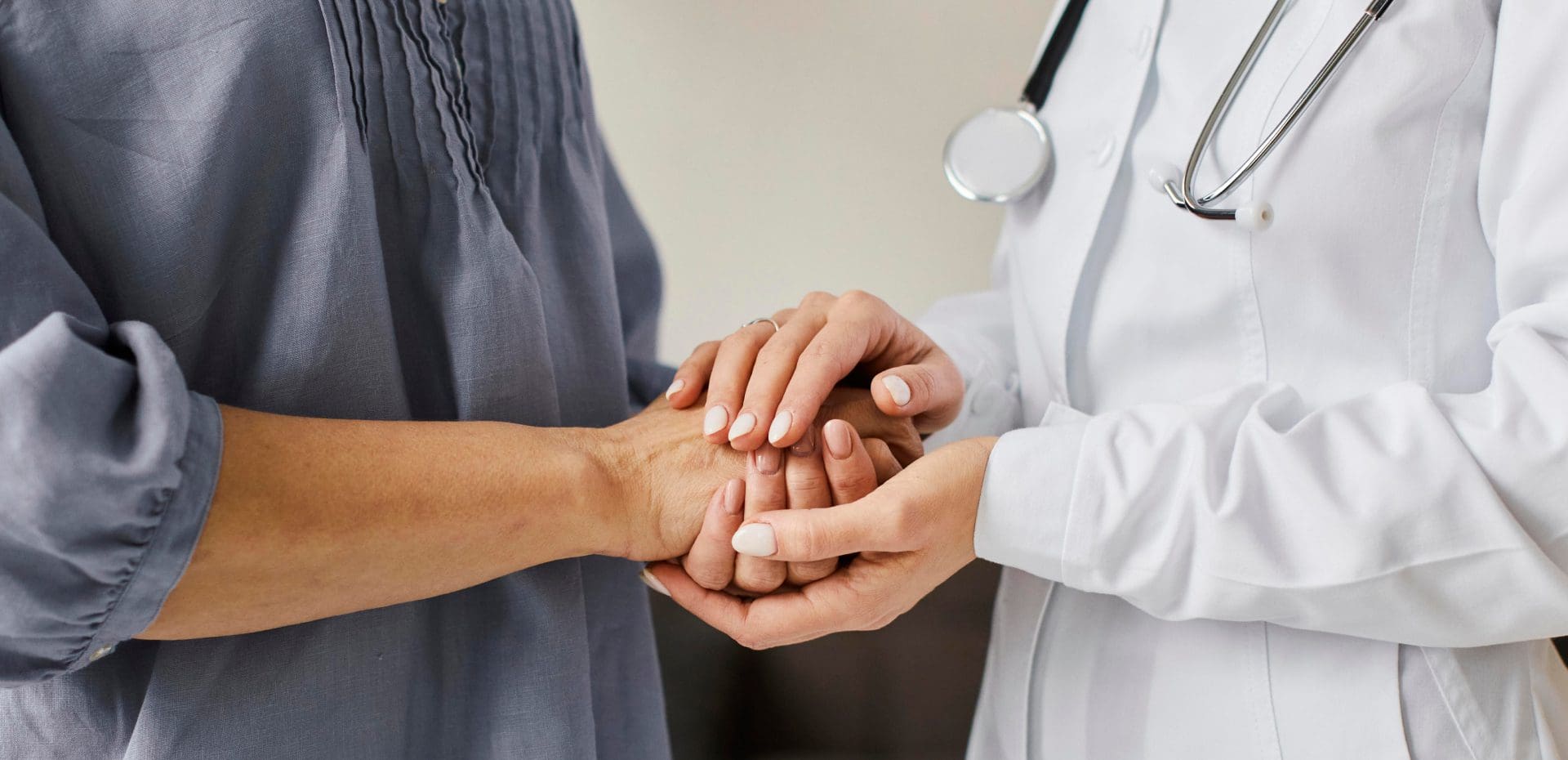
Sleep Disorders Program
At Almoosa Rehabilitation Hospital’s Sleep Disorders Center, we provide specialized services for diagnosing and treating a wide range of sleep issues that impact a patient’s health and quality of life. Using the latest polysomnography (PSG)technology and under the supervision of a dedicated sleep-medicine team, we offer comprehensive care for sleep – related disorders.
In our advanced sleep laboratory, we perform accurate overnight studies using state-of-the-art multi-channel monitoring systems to measure brain activity, breathing patterns, body movements, and heart rate during sleep. This allows us to reach a precise diagnosis and design an effective treatment plan.
Symptoms
Sleep disorders may present differently from one person to another, and may include all or some of the following:
- Loud snoring
- Pauses in breathing during sleep (sleep apnea)
- Awakening due to snoring or gasping for breath
- Morning headaches or recurrent headaches during daytime
- Frequent nighttime urination (nocturia)
- Unexplained high blood pressure
- Weight gain and obesity
- Difficulty concentrating during the day
- Low activity levels, fatigue, and irritability
- Drowsiness while driving or working
- Difficulty falling asleep or staying asleep (insomnia)
- Leg-kicking or excessive movements during sleep
Diagnosis
Evaluation typically begins in the sleep-medicine clinic or with pulmonology or ENT (ear, nose & throat) physicians.
Once your case is assessed, you may be referred to our sleep laboratory, where you will complete a detailed questionnaire about your daily habits—such as diet, sleep routine, and medications.
Sleep Study
During the overnight test, a sleep-technician attaches electrodes and sensors to multiple body sites (head, face, chest, abdomen, legs) in order to record and monitor:
- Brain waves (electroencephalography – EEG)
- Respiratory effort and airflow
- Blood oxygen saturation (pulse oximetry)
- Heart rate (electrocardiography – ECG)
- Limb and body movement
The study takes place in a comfortable, private room that replicates the home environment; typically the patient sleeps from about 10 PM until waking time. All data are recorded at high resolution to identify the specific sleep disorder and form an individualized treatment plan. Some cases may require additional morning testing
- Overnight sleep study (Polysomnography) for monitoring physiological activity during sleep
- Sleep apnea diagnostics (Obstructive and Central Sleep Apnea)
- Evaluation of chronic insomnia, excessive daytime sleepiness (hypersomnia), and recurrent nightmares
- Diagnosis of restless legs syndrome (RLS) and periodic limb movement disorder (PLMD)
- Monitoring of abnormal sleep behaviours (such as sleep-walking or night-terrors)
- Follow-up and titration of CPAP therapy for sleep-apnea patients
Who Can Benefit?
- Adults and children experiencing difficulty initiating or maintaining sleep
- Patients with chronic snoring or suspected sleep-apnea
- Individuals who are persistently fatigued or sleepy during the day despite adequate sleep
- Patients with epilepsy or neurological disorders that affect sleep quality
- Individuals with mental-health conditions (depression, anxiety) associated with sleep disturbances
- Shift-workers or those with circadian-rhythm disorders
Features & Technologies
- Modern sleep laboratory with residential-style rooms designed for overnight comfort
- Multi-channel monitoring equipment tracking respiration, movement, oxygenation, and brain activity
- Continuous medical and nursing supervision throughout the study night
- Detailed medical reports that enable the creation of tailored treatment plans
Pre-examination instructions
- On the examination day:
- Do not take a nap before the sleep study.
- Do not drink caffeine or soft drinks.
- Bring your slippers, a toothbrush, and a book to read.
- Bring your medications (long-term medications that you take frequently).
- A companion is recommended for elderly patients.
- Personal Hygiene is a must.
- Do not wear any hair gel or hair spray, or henna.
- To reschedule your appointment: Call 0135369666 Ext: 1298
Caution: Failure to comply with the instructions mentioned above may cause the test to fail
Early and accurate diagnosis
Early and accurate diagnosis of sleep disorders helps to:
- Improve general health
- Enhance mood
- Increase focus
- And day-to-day performance.
At our Sleep Disorders Center at Almoosa Rehabilitation Hospital, we prioritize patient comfort and quality of life above all.
